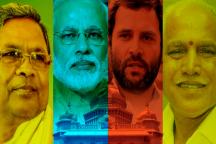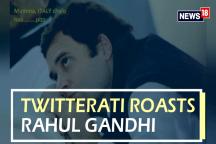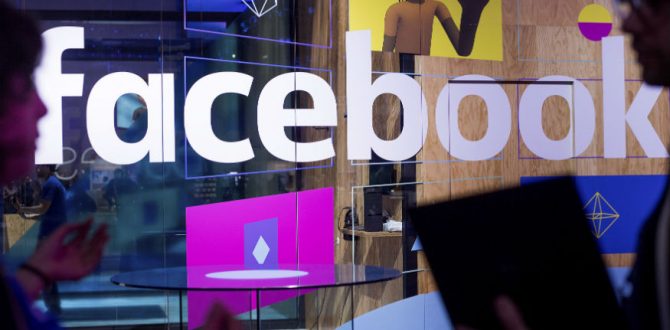Also Read: Honor 10 First Impressions Review: An AI Camera Phone to be Reckoned With in 2018
Had the company not shut down all those fake accounts, its audience of monthly users would have swelled beyond its current 2.2 billion and probably created more potentially offensive material for Facebook to weed out. Facebook’s self-assessment showed its screening system is far better at scrubbing graphic violence, gratuitous nudity and terrorist propaganda. Automated tools detected 86 percent to 99.5 percent of the violations Facebook identified in those categories.
For hate speech, Facebook’s human reviewers and computer algorithms identified just 38 percent of the violations. The rest came after Facebook users flagged the offending content for review. All told, Facebook took action on nearly 1.6 billion pieces of content during the six months ending in March, a tiny fraction of all the activity on its social network, according to the company.
The report marked Facebook’s first breakdown on how much material it removes for violating its policies. It didn’t disclose how long it takes Facebook to remove material violating its standards. The report also doesn’t cover how much inappropriate content Facebook missed. “Even if they remove 100 million posts that are offensive, there will be one or two that have some really bad stuff and those will be the ones everyone winds up talking about on the cable-TV news,” said Timothy Carone, who teaches about technology at the University of Notre Dame.
Also Read: Apple’s Self-Driving Cars Grows to 55 in California
Instead of trying to determine how much offending material it didn’t catch, Facebook provided an estimate on how frequently it believes users saw posts that violated its standards, including content that its screening system didn’t detect. For instance, the company estimated that for every 10,000 times that people looked at content on its social network, 22 to 27 of the views may have included posts that included impermissible graphic violence.
The report also doesn’t address how Facebook is tacking another vexing issue — the proliferation of fake news stories planted by Russian agents and other fabricators trying to sway elections and public opinion.
Fake accounts on Facebook have been drawing more attention because Russian agents used them to buy ads to try to influence the 2016 election in the U.S. Even though it has been focusing on shutting down bogus accounts, Facebook has said that 3 to 4 percent of its active monthly users are fake. That means as many as 88 million fake Facebook accounts were still slipping through the cracks in the company’s policing system through March. It’s not surprising that Facebook’s automated programs have the greatest difficulty trying to figure out differences between permissible opinions and despicable language that crosses the line, Carone said.
“It’s like trying to figure out the equivalent between screaming ‘Fire!’ in a crowded theater when there is none and the equivalent of saying something that is uncomfortable but qualifies as free speech,” he said. Facebook said it removed 2.5 million pieces of content deemed unacceptable hate speech during the first three months of this year, up from 1.6 million during the previous quarter. The company credited better detection, even as it said computer programs have trouble understanding context and tone of language.
Also Read: Facebook Has Not Fully Answered Questions on Data Privacy: UK Lawmakers
Facebook took down 3.4 million pieces of graphic violence during the first three months of this year, nearly triple the 1.2 million during the previous three months. In this case, better detection was only part of the reason. Facebook said users were more aggressively posting images of violence in places like war-torn Syria. The increased transparency comes as the Menlo Park, California, company tries to make amends for a privacy scandal triggered by loose policies that allowed a data-mining company with ties to President Donald Trump’s 2016 campaign to harvest personal information on as many as 87 million users. The content screening has nothing to do with privacy protection, though, and is aimed at maintaining a family-friendly atmosphere for users and advertisers.
Also Watch: Honor 10 First Impressions Review: The AI Camera Smartphone
Also Watch
-
 Karnataka Elections Results Here’s What Can Happen In Now
Karnataka Elections Results Here’s What Can Happen In Now
-
 Tuesday 15 May , 2018
Tuesday 15 May , 2018
Watch: Our In-House Cartoonist Neelabh’s Witty Take On The Congress-JDS Alliance In Karnataka
-
 Tuesday 15 May , 2018
Tuesday 15 May , 2018
Karnataka Elections : Twitterati Mocks Rahul Gandhi With Tons of Memes
-
 Saturday 12 May , 2018
Saturday 12 May , 2018
How Karnataka Has Voted In Last Eight Elections
-
 Saturday 12 May , 2018
Saturday 12 May , 2018
Mother’s Day Special : Bollywood Actor Rahul Dev Opens Up About Being a Mother to his Son


Watch: Our In-House Cartoonist Neelabh’s Witty Take On The Congress-JDS Alliance In Karnataka

Karnataka Elections : Twitterati Mocks Rahul Gandhi With Tons of Memes

How Karnataka Has Voted In Last Eight Elections

Mother’s Day Special : Bollywood Actor Rahul Dev Opens Up About Being a Mother to his Son






